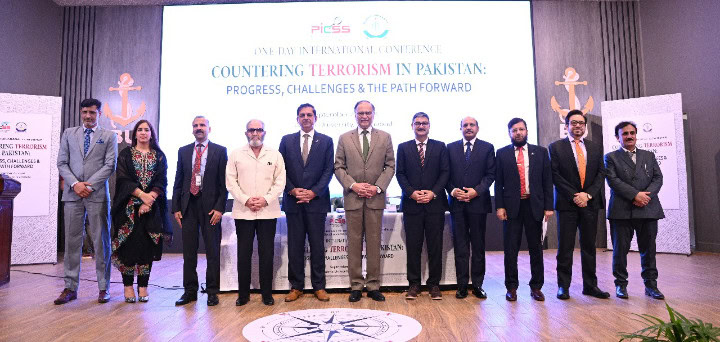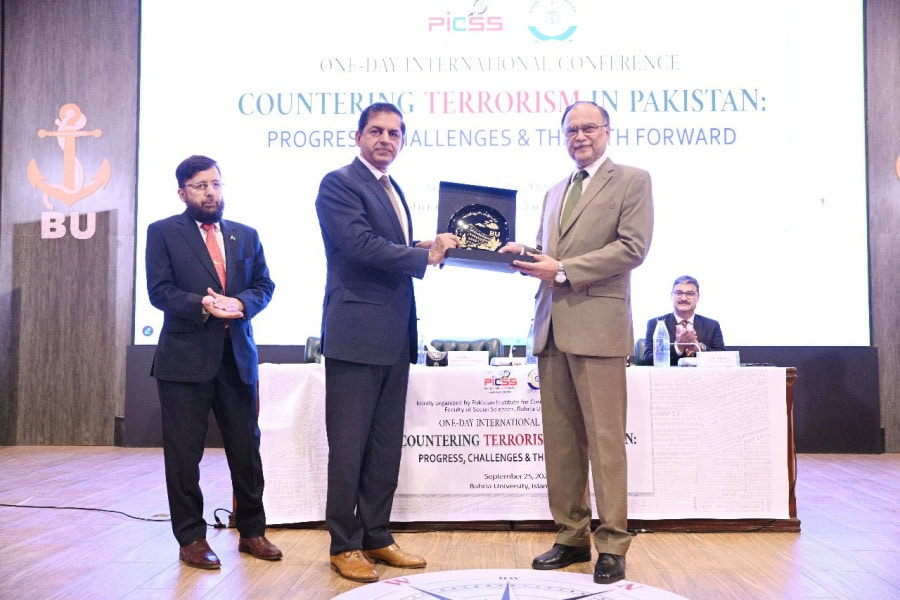Govt resolved to root out terrorism, says Ahsan Iqbal
Federal Minister for Planning, Development & Special Initiatives Prof Ahsan Iqbal has said that terrorism has cast a long shadow over Pakistan, claiming more than 80,000 lives and costing the nation approximately $150 billion over the past two decades, yet the government has demonstrated resilience and sacrifice in the face of this menace
He was addressing a one-day seminar on “Countering Terrorism in Pakistan: Progress, Challenges, and the Way Forward” at Bahria University on Wednesday.
The event was jointly organized by the Pakistan Institute of Conflict & Security Studies (PICSS) and the Bahria University Islamabad.

While speaking at the seminar, AhsanIqbal stated that it was a privilege to stand at this critical conference. As we move forward, he said, we must balance military actions with non-kinetic measures, recognizing that counterterrorism requires a holistic approach.
Addressing the seminar, the minister highlighted that Pakistan’s battle against terrorism had yielded significant successes, largely due to the valiant efforts of the armed forces, law enforcement agencies, and the resilience of its people.
Military operations such as Zarb-e-Azb and Radd-ul-Fasaad were described as milestones in the war against terrorism. These campaigns dismantled key terrorist networks, cleared militant strongholds in the tribal areas, and restored over 90% of the tribal regions to state control. More than 7,000 terrorists were killed during these operations.
The minister also underscored the importance of the National Action Plan (NAP), adopted in 2015, which serves as a comprehensive framework to address terrorism in all its forms. From cracking down on hate speech to improving intelligence coordination, the NAP has achieved significant successes, including a 30% reduction in terror attacks over the last five years. The establishment of military courts and reforms in madrassas played pivotal roles in this success. Internationally, Pakistan’s efforts in dismantling transnational terror networks and curbing terror financing have been acknowledged.
In 2022, Pakistan was removed from the FATF’s grey list—a testament to progress in controlling terror financing and improving financial transparency.
On the impact of social media, the minister pointed out that the rise of lone-wolf attacks, cyber-radicalization, and the use of social media for extremist recruitment have transformed the landscape. A recent report shows that 80% of terrorist organizations now use digital platforms for recruitment, communication, and radicalization. He stressed the need for investment in cyber security and digital literacy to counter this threat.
Prof AhsanIqbal also expressed concerns about the threat of digital misinformation, emphasizing that social media is being used to spread hatred and misconceptions, fueling instability and promoting terrorism in the country.
He shared a personal experience, recounting how six years ago, he was targeted in an assassination attempt by someone influenced by hate spread through social media. “Digital misinformation is now the most dangerous weapon globally,” he warned, as it undermines nations, causes instability, and pushes them toward terrorism.










